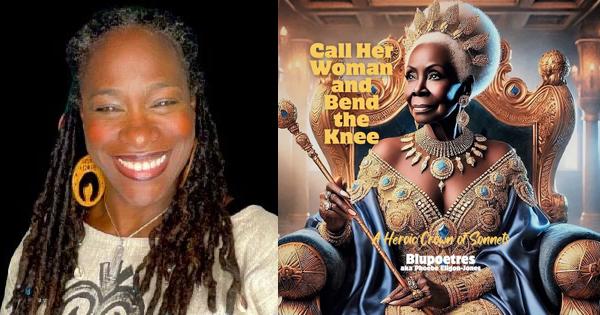“We are not where we’re supposed to be, but don’t take the freedom that we do have for granted” - Colvin. Black History Month 2023.

Black History Month was first marked by Carter G Woodson, the first being February 1976. In the US. In the UK however, it was Akyaaba Addai-Sebo, a Ghanan refugee, who started our Black History Month in October 1984. Like Woodson before him, he wanted to challenge racism and celebrate the history of black people. Now, October 2023 we mark the 39th Black History Month and we celebrate women.
Most know that Rosa Parks was not the first black woman to refuse to give up her seat on the bus to a white person. That would be Claudette Colvin. Claudette Colvin, a 15 year old student from Booker T Washington High School, a segregated school, got onto a segregated bus on her way home. Moments later when the bus became busy with passengers, she was asked to give up her seat for a white passenger, by the bus driver. Colvin, famously, like Rosa Parks, refused. When interviewed 65 years later, Colvin recalled in detail that day:
“History had me glued to the seat,” she says, tapping her shoulders. “It felt as if Harriet Tubman’s hand was pushing me down on the one shoulder, and Sojourner Truth’s hand was pushing me down on the other. Learning about those two women gave me the courage to remain seated that day.” (Oliver Laughland)
When Colvin refused to give up her seat, she was dragged off the bus by two white police officers, charged and placed in jail. These charges were eventually dropped. At 82 years old, in 2021, it was Colvin herself that officially had her name cleared.
‘Despite this country’s ongoing battle with systemic racism, it was Colvin’s hope that getting her name officially cleared would serve as proof to current generations—and specifically her five children and six grandchildren—that progress has been made and much more is possible.’ (McKenzie Jean-Philippe)
On November 24, 2021, Judge Calvin Williams of Montgomery County, Alabama, signed the order to seal and destroy the juvenile court records of Colvin’s arrest at the age of 15 and weeks before the Christmas/New Year holidays, Colvin herself released the news, giving hope to all while approaching the new year. Now, two years later, as we ‘salute our sisters’ we remember the young girl who, months before Rosa Parks, took a stand which secured her place in history.
Although Colvin is to some degree a success story, she recalls those who were not, more specifically, her neighbour: Jeremiah Reeves.
Reeves was a pupil at Booker T Washington school, like Colvin, and was only 16 years old when he was sentenced to death for the rape of a white woman - convicted by an all white jury. He was tortured by police until he made a confession for the rape.
‘In July 1951, Jeremiah, who was a 16-year-old high school student at the time, and Mabel Ann Crowder, a white woman, were discovered having sex in her home. Ms. Crowder claimed she had been raped by Jeremiah, and he was immediately arrested and taken to Kilby Prison for “questioning.” Police strapped the frightened boy into the electric chair and told him that he would be electrocuted unless he admitted to having committed all of the rapes white women had reported that summer. Under this terrifying pressure, he falsely confessed to the charges in fear. Though he soon recanted and insisted he was innocent, Jeremiah was convicted and sentenced to death after a two-day trial during which the all-white jury deliberated for less than 30 minutes.’ (A History Of Racial Injustice)
‘Reeves had retracted a confession, made under duress, prompting the intervention of the National Association for the Advancement of Colored People (NAACP)’. (Oliver Laughland)
Despite this being in the US, The UK has its own racial injustices - across the healthcare NHS, The Metropolitan Police Force as well as institutions such as our education system.
‘More than a third of people from ethnic and religious minorities have experienced racially motivated physical or verbal abuse, according to the biggest and most comprehensive survey of race inequality in the UK for more than a quarter of a century.’
This survey was completed to expose levels of abuse across a range of ethnic minority groups. (Patrick Butler)
“Britain is not close to being a racially just society,” concludes the two-year research project, which urges ministers to tackle what it describes as “substantial ethnic inequalities” found across a range of areas of British life and institutions. (Patrick Butler)
We must all be like Colvin, be inspired by those who went before us, and together stand up to racial injustice. As Colvin said, the laws will change.
Colvin, in her bravery, showed that she would never give up. Not then, and not now. At 15 years old, she was treated as an adult and made to serve in an adult jail. Adultification, a term we are more familiar with today.
‘The current awareness of adultification provides further context and verbiage to the conversation about racial discrimination in the UK. Rooted in historical racial discrimination, adultification takes form in both the socialisation and social perception of Black children, but more specifically Black girls.’ (BLAM UK)
Colvin speaks of a model of how to bring about change. She simply says:
“I have lived long enough to tell the young people my story, and they should stay strong and not get discouraged.” (McKenzie Jean-Philippe)
October 2023, Black History Month. This year we celebrate women, and how far we have come. But we all understand that we are not at the end of our road. There is still much work to. The Casey Report (March 2023) details issues within the police force: black men are seven times more likely to die following police restraint. (Police racism report 2023) And despite having people of colour in the positions of Prime Minister (Rishi Sunak) and Home Secretary (Suella Bravaman, a politician, former barrister) racism against non white Britons is still, very much an issue - with Bravaman, despite not being white, upholding the white instution which opresseses people of colour.
‘More senior Conservatives have hit out at Suella Braverman’s “racist rhetoric”’ (Aletha Adu, Jessica Elgot and Kiran Stacey). We still are having issues with racism. Both our Prime Minister and Home Secretary can be accused of being ‘gatekeepers.’
Dr Shola Mos-Shogbamimu, arguably a modern day freedom fighter and another black female that should be honoured for Black History Month, has been vocal about White Supremacy, as well as these ‘gatekeepers.’
‘The majority of those will be white – but I’m sure that there’ll be some black and brown brothers and sisters shooting off their mouths as racial gatekeepers – because it’s not a difference of opinion if you deny my humanity just to save yours. I believe in engagement between societies, but it cannot be to the extent that one society totally plunders, spoils, steals, kills, kidnaps another society just purely for its benefit.
I don’t think we can talk about race, racism and race relations without talking about racial gatekeepers. We must understand that racial gatekeepers have existed from time immemorial. The people who will put themselves first, over those who are similar to them, all because of their proximity to whiteness and wanting to get the benefits from that. People who will close the gates and create huge obstacles that will stop the progress of other people. Look at Priti Patel; how can you look at the system that helped your parents come into this country, so you could rise to become Home Secretary and now you want to stop other people who look like you from having the same opportunities? Not all skin-folk are kin-folk. Whatever position I’m in, I should be helping to bring more people through the same gate I walked through. Heck, we need a whole new set of gates. We should not stop talking about the role ratio gatekeepers play, but what people must do is equate racial gatekeeping to difference of opinion. It’s not the same thing.’ (Racism is White People’s Problem)
Dr Shola Mos-Shogbamimu continues to be vocal about issues with racism in the UK and in one of the sisters we must salute and thank for her bravery and plain speaking for all of our benefit.
And so, in our 36th year of celebrating Black History Month in the UK, we recognise the journey taken, but the fight continues -“We are not where we’re supposed to be, but don’t take the freedom that we do have for granted” - Colvin.
In honour of Saluting the Sisters, please click on the link to read about 10 Black British women who've shaped history, and who, like Colvin, have been overlooked. The list includes Baroness Doreen Lawrence as well as Dianne Abbot. (Girlguiding)





















